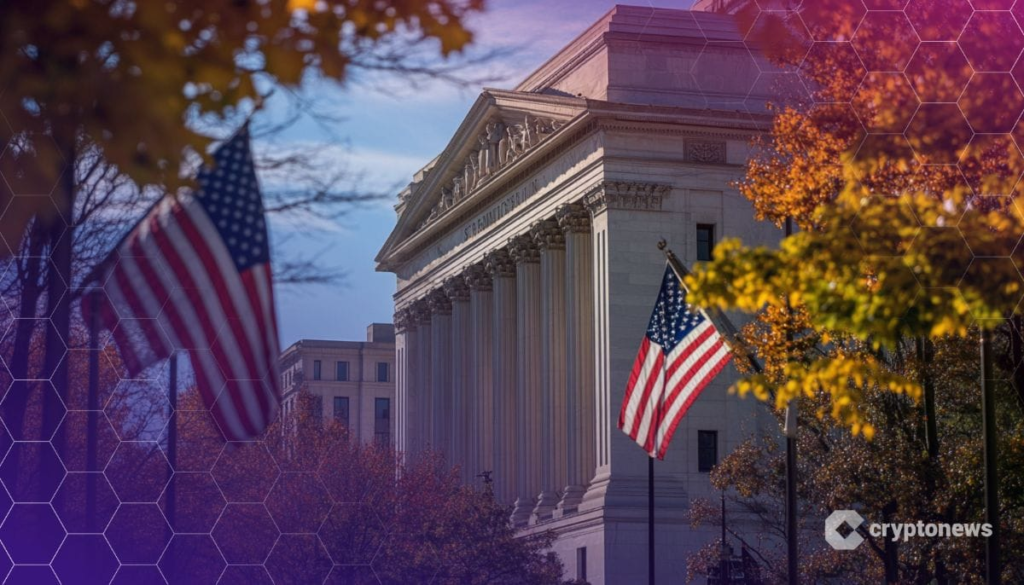Crypto NEWS
“Deutsche Bank Hit with $4 Million Fine for Delayed Suspicious Activity Reports – What This Means for Financial Markets”

Deutsche Bank Securities Hit with $4 Million Penalty for Delayed SAR Filings: What Went Wrong?
In a significant blow to Deutsche Bank Securities, the company has agreed to pay a hefty $4 million penalty to the U.S. Securities and Exchange Commission (SEC) for failing to file Suspicious Activity Reports (SARs) on time. The fine is the result of a prolonged pattern of non-compliance spanning nearly five years, leaving the firm with a blemish on its regulatory record.
A History of Compliance Failures
The SEC’s investigation found that Deutsche Bank Securities, a registered broker-dealer and subsidiary of Deutsche Bank AG, repeatedly delayed filing SARs, which are critical for identifying and flagging suspicious financial activity. Between April 2019 and March 2024, the firm consistently failed to adhere to regulatory timelines for reporting transactions that raised red flags for potential illegal activities or suspicious behavior.
One of the most concerning revelations was the firm’s sluggish response to requests from law enforcement and regulatory bodies. In several instances, investigations that warranted SAR filings dragged on for more than two years before action was taken. These delays ultimately resulted in a significant backlog of overdue reports, diminishing the efficacy of the information by the time it was made available to law enforcement.
SEC’s Findings: A Systemic Breakdown
The SEC’s findings highlight how critical compliance failures left Deutsche Bank Securities in violation of the Bank Secrecy Act and associated regulations, which mandate broker-dealers to report suspicious transactions without delay.
Despite these requirements, the firm’s internal processes failed to ensure timely filings. In one particularly egregious case, Deutsche Bank filed a SAR identifying 68 suspicious transactions, totaling nearly $2 billion, more than two years after a regulatory agency requested an investigation.
Sheldon Pollock, SEC Associate Director, emphasized the dangers of delayed filings, pointing out that stale information is of limited use for law enforcement efforts. “Even the best information collected from SARs is of limited use if it’s stale by the time it’s provided to law enforcement,” he said.
What Does This Mean for Deutsche Bank Securities?
While Deutsche Bank Securities neither admitted nor denied the SEC’s findings, the company has agreed to a settlement that includes a cease-and-desist order, a censure, and the substantial $4 million penalty. The fine marks a significant blow to the company’s compliance standing, though the firm has committed to taking corrective actions to prevent future violations.
Deutsche Bank has also underscored its dedication to regulatory obligations, noting that remedial steps were already underway before the settlement. However, the damage has been done, and the firm now faces heightened scrutiny over its compliance culture.
The SEC’s Broadening Regulatory Scope
As the SEC cracks down on compliance issues within financial institutions, it has also expanded its reach into the crypto sector, where regulatory ambiguity remains a major issue. The agency recently issued a Wells notice to the NFT project CyberKongz, alleging potential violations of securities laws. CyberKongz, however, strongly opposed the SEC’s move, accusing the regulator of failing to understand blockchain technologies.
This action comes on the heels of a similar notice issued to OpenSea earlier this year. The crypto industry has long called for clearer guidelines, and with incoming regulatory reforms expected under a new administration, the hope is that the space will see more freedom to innovate without the weight of uncertain regulations.
Moving Forward: A Tough Lesson for Financial Institutions
The $4 million penalty handed to Deutsche Bank Securities serves as a stark reminder of the importance of timely compliance in the financial world. With law enforcement agencies relying heavily on SARs to detect criminal activity, any delay in filing can have significant consequences, not only for the institution but also for the broader financial system.
As financial institutions like Deutsche Bank Securities work to rebuild their compliance frameworks, the case serves as a warning to others in the industry: timely reporting isn’t just a regulatory requirement; it’s crucial for safeguarding the integrity of the market.
For the broader crypto space, the SEC’s aggressive stance and its recent actions against NFT projects highlight the ongoing tension between innovation and regulation. As the regulatory landscape continues to evolve, the hope is that clearer guidelines will emerge to enable smoother development of blockchain technologies while ensuring that illicit activity doesn’t go unchecked.
By emphasizing the potential impact of regulatory failures, this post captures the essence of the issue while providing a comprehensive look at the events surrounding Deutsche Bank’s penalty.














